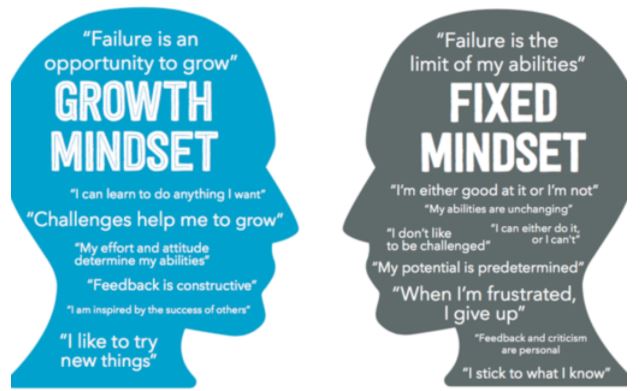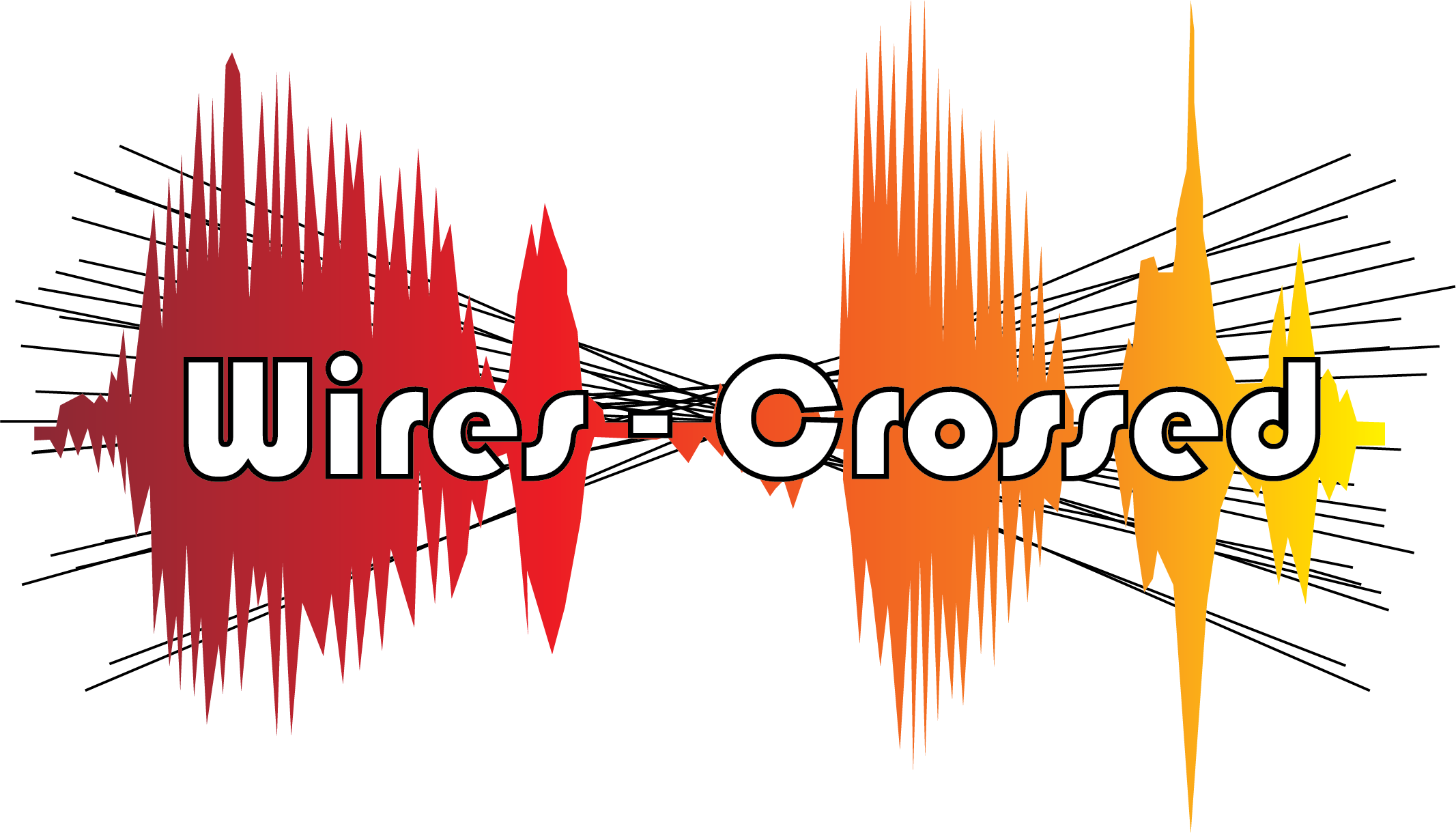One of the barriers for non-participation of adults in education and training was found to be previous failure in learning, interpreted as negative prior education experiences (DIMA 2.0 project, 2020; Paterson, 2018; Roosmaa & Saar, 2017). Also found as dispositional, attitudinal, or internal barriers, these experiences produce a sense of inadequacy and inability towards learning. These perceptions and feelings hold many adults away from further education, even if they have the required skills. This category of adults usually presents low levels of self-confidence, fear of failure, and negative attitudes towards their learning (MacKeracher, Suart & Porter, 2006). According to Dr. Carol Dweck, these are characteristics of a fixed mindset.
The other side of the coin is growth mindset. In fact, growth and fixed mindset are not novel terms. However, Carol managed to develop a relevant theoretical framework, apply it in educational settings and popularize it among the educational psychology research community. Nowadays, her work is widely applied by educators, practitioners, and researchers, while it is supported by strong evidence. So, what is growth and fixed mindset and why is it useful to know about them?
Before we dive into Carol’s research (Dweck, 2000, 2006, 2008, 2009), it should be clarified that mindset (= the established set of core beliefs and attitudes) is influenced by numerous factors (i.e. experiences, education, culture etc.). These also include influences of previous teachers, coaches, or educators, which is the case for this article. In addition, the two opposite sides of the spectrum explained below, do not form two categories of people. It is very likely that we adopt one type of mindset in certain areas and the opposite in others; we are a mixture. These two extremes are used as a simplified way to explain the range of different ways of thinking. So, let us get the main idea.

Growth Vs Fixed mindset
As stated above, people with a fixed mindset believe that achievement is a result of one’s innate intelligence and abilities. They think that we are born with a specific amount of capabilities which define our level of achievement throughout life. In short, they believe that intelligence is a fixed trait, and they cannot change it. Not surprisingly, these people worry about looking smart and not making mistakes, because they perceive mistakes as a sign of low ability. This mindset has several implications in learning. Any academic failure functions as proof of inefficacy in that domain. Therefore, these people are not likely to invest any extra effort to change their prior setbacks. Instead, they believe that investing extra effort is the proof of low competence and lack of talent. As a result, when they met with a failure, they lose heart and do not attempt any recovery. For these reasons, they usually express fear of risk (to avoid looking dumb), they desperately seek recognition from others (to confirm their selves), and they exude a feeling of competitiveness (because they need to seem better than others).
On the contrary, people with a growth mindset believe that intelligence and skills are grown and developed. They believe that achievement comes through working and practicing on their abilities until they reach the level of mastery. At the same time, failure is an indication of inadequate amount of effort. In short, they feel in control of their abilities and therefore, their success. In academic settings, these people care about learning because developing their mind and knowledge will make them better. People with a growth mindset understand that mistakes and effort are integral parts of learning. Therefore, each mistake is an opportunity to learn and feedback will help them improve. For those with a growth mindset, failure is accepted, but it is also a warning to pay more attention and make more effort the next time.
Responding to the question “when do you feel smart?”, people with a fixed mindset will state situations of dealing with an easy task, or solving a problem quickly, or doing an exercise without mistakes. They might even recall situations where they looked smarter in comparison with others. On the other hand, people with a growth mindset will refer to situations where they struggled and made progress after hard work, or cases where they helped others learn. Try to make this question-experiment to people around you. You will be amazed by the stories you will hear, while some might inspire you. In any case, the objective is always to initiate a constructive conversation and not criticize each other.
The most critical part, however, is answering the question “how do we teach growth mindset?”. How do we encourage adults with prior academic setbacks to embrace this attitude toward learning? How can we inspire them to awaken their learning instincts and make a new beginning? Such answer cannot be limited on a checklist or several tips. However, some concepts found in the literature are presented below as reference point for us -educators, parents, students, managers, colleagues etc.
- Maintain a growth mindset yourself. While it is not ensured, educators’ growth mindset is likely to affect both learning attitudes and achievement of learners (Bostwick et al., 2020; Haimovitz & Dweck, 2017). Although, mindset is not about the surface but is mostly about our shadow beliefs. Sometimes, we might think that making mistakes is fine, but we then find ourselves giving up and putting no effort to improve. In other cases, we might believe that we have a growth mindset, but this can be merely true and limited to some areas only. And of course, it is not only black and white. Growth mindset, as by definition, needs constant effort to maintain and transmit.
- Challenge your learners all the time. Challenge is key to understand growth mindset. It is also a fundamental element of motivation at all levels. Challenges function as opportunities to demonstrate learners’ improvement. The accomplishment of a difficult -but attainable- task or goal is the proof that we can evolve and develop. In addition, it has a direct positive effect in self-concept and affective reactions that lead to achievement choices. This process feeds a vicious cycle of wanting to achieve more and more – a positive snowball effect – (Paunesku et al., 2015; Woods, 2020).
- Embrace failures and mistakes. There are still many people that do not understand the naturalness and utility of mistakes in daily life. Educators’ reactions of anxiety and concern toward failure, is not only the wrong way to promote a growth mindset, but most importantly, it can be demolishing for students’ self-confidence and commitment (Andrews, 2017, Dweck, 2006). Therefore, setbacks provide interesting opportunities and valuable information to learn, if we make useful interpretations. There are so many powerful quotes and examples on how we could deal with failure (see Albert Einstein, Burrhus F. Skinner, Henry Ford, John F. Kennedy, Napoleon Hill, Tomas A. Edison, and many more), but we still need much work on its management.
- Give feedback carefully. As you know, feedback is essential to learning. However, if given wrong, it can be also the reason for quitting learning. Providing feedback cannot be learned in a short paragraph. However, growth mindset reminds us to praise effort -not achievement-, persistence -not result- and learning strategies -not answers-. In other words, focus and make comments on the process and less on the product of learning.
- Teach psychoeducation and brain neuroplasticity. Despite the lots of examples and evidence of our daily life, some people still deny to comprehend that we can grow and become more “intelligent”. Research demonstrated that targeted interventions providing knowledge about brain’s ability to grow, adapt, and learn in new neuropathways, might influence learners’ perceptions (Lewis et al., 2020; Paunesku et al., 2015; Yeager et al., 2019). Moreover, the experiences of others on how they grew their capacity and how they overcame challenges, could funtion as lessons of self-malleability (on “intelligence”, behaviours, and feelings).
The above list is not exhaustive and maintaining or teaching a growth mindset is not an easy step-by-step process. In addition, not all evidence confirms replicability and scalability of interventions in all contexts (Ganimian, 2020). Nonetheless, the research of mindsets in adult education has already set off with promising results (e.g. Bostwick & Becker-Blease, 2018; Candy, 2019; Derr & Morrow, 2020). While, it can also give us valuable information for more aspects and roles of our lives e.g. as parents, colleagues, students, or just friends.
Demos Michael is project researcher at CARDET (Center for the Advancement of Research & Development in Educational Technology) while his expertise focuses on educational research. He is interested in topics related to equity and inclusion of educational effectiveness, as well as non-cognitive processes that affect academic achievement. More specific fields of interest are motivation, achievement choices, expectancy beliefs, mindset, perseverance, persistence, self-efficacy and others. He has been recently involved in the implementation of various projects in adult education and other research activities. He believes that all individuals have a special capability on at least one domain where they can develop genius.
References
Andrews, B. D. (2017). Success by Failure. About Campus, 22(4), 13–19. https://doi.org/10.1002/abc.21298
Bostwick, K. C. P., & Becker-Blease, K. A. (2018). Quick, Easy Mindset Intervention Can Boost Academic Achievement in Large Introductory Psychology Classes. Psychology Learning & Teaching, 17(2), 177–193.
Bostwick, K. C. P., Collie, R. J., Martin, A. J., & Durksen, T. L. (2020). Teacher, classroom, and student growth orientation in mathematics: A multilevel examination of growth goals, growth mindset, engagement, and achievement. Teaching and Teacher Education, 94. https://doi.org/10.1016/j.tate.2020.103100
Candy, M. (2019). Growth Mindset Vs. Fixed Mindset in Correctional Adult Education Setting. Journal of Research & Practice for Adult Literacy, Secondary & Basic Education, 112–114.
Derr, S., & Morrow, M. T. (2020). Effects of a Growth Mindset of Personality on Emerging Adults’ Defender Self-Efficacy, Moral Disengagement, and Perceived Peer Defending. Journal of Interpersonal Violence, 35(3/4), 542.
DIMA 2.0 project (2020). Transnational Report for Developing Strategies for Adult Education Providers and Adult Educators. Date accessed online [15/10/2020] from www.project-dima.eu.
Dweck, C. S. (2000). Self-theories: Their role in motivation, personality, and development. Philadelphia, PA: Taylor & Francis.
Dweck, C. S. (2006). Mindset: The new psychology of success. New York: Random House.
Dweck, C. S. (2008). Mindsets: How Praise Is Harming Youth and What Can Be Done about It. School Library Media Activities Monthly, 24(5), 55–58.
Dweck, C. S. (2009). Who Will the 21st-Century Learners Be? Knowledge Quest, 38(2), 8–9.
Ganimian, A. J. (2020). Growth-Mindset Interventions at Scale: Experimental Evidence From Argentina. Educational Evaluation & Policy Analysis, 42(3), 417.
Haimovitz, K., & Dweck, C. S. (2017). The Origins of Children’s Growth and Fixed Mindsets: New Research and a New Proposal. Child Development, 88(6), 1849–1859. https://doi.org/10.1111/cdev.12955
Lewis, L. S., Williams, C. A., & Dawson, S. D. (2020). Growth Mindset Training and Effective Learning Strategies in Community College Registered Nursing Students. Teaching and Learning in Nursing, 15(2), 123–127. https://doi.org/10.1016/j.teln.2020.01.006
MacKeracher, D., Suart, T., & Porter, J. (2006). Barriers to Participation in Adult Learning. University of New Brunswick.
Patterson, M. B. (2018). The Forgotten 90%: Adult Nonparticipation in Education. Adult Education Quarterly, 68(1), 41–62. https://doi.org/10.1177/0741713617731810
Paunesku, D., Walton, G.M., Romero, C., Smith, E.N., Yeager, D.S., & Dweck, C.S. (2015). Mind‐set interventions are a scalable treatment for academic underachievement. Psychological Science, 26, 784–793.
Roosmaa, E. L., & Saar, E. (2017). Adults Who Do Not Want to Participate in Learning: A Cross-National European Analysis of Their Perceived Barriers. International Journal of Lifelong Education, 36(3), 254–277.
Woods, D. M. (2020). Using Goal Setting Assignments to Promote a Growth Mindset in IT Students. Information Systems Education Journal, 18(4), 4–11.
Yeager, D. S., Hanselman, P., Walton, G. M., Murray, J. S., Crosnoe, R., Muller, C., … Dweck, C. S. (2019). A national experiment reveals where a growth mindset improves achievement. Nature, 573(7774), 364–369. https://doi.org/10.1038/s41586-019-1466-y
